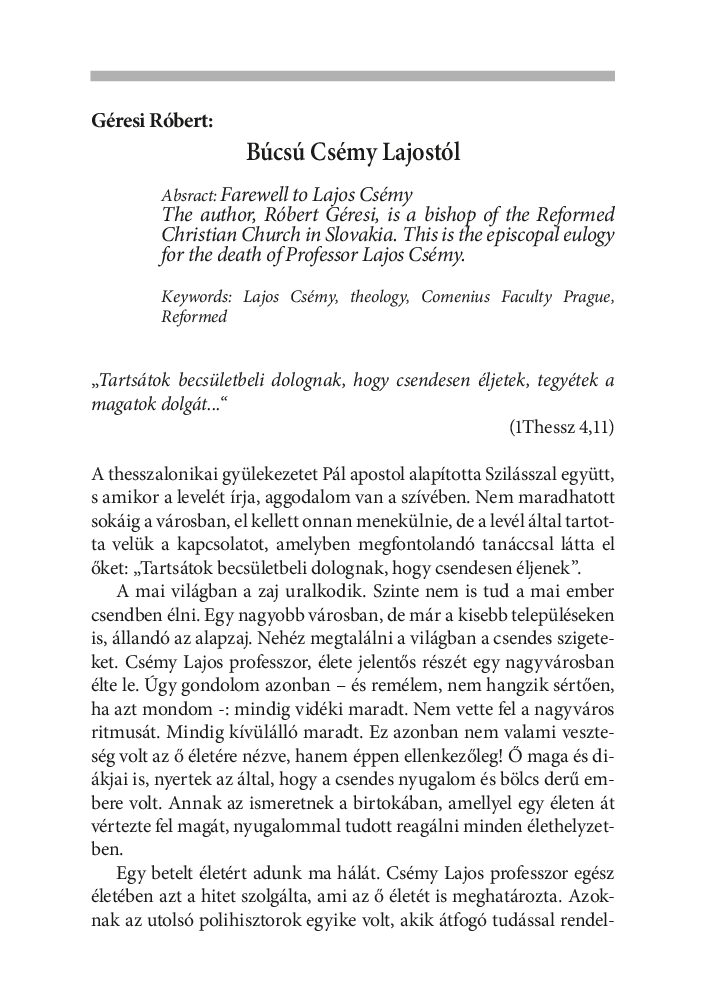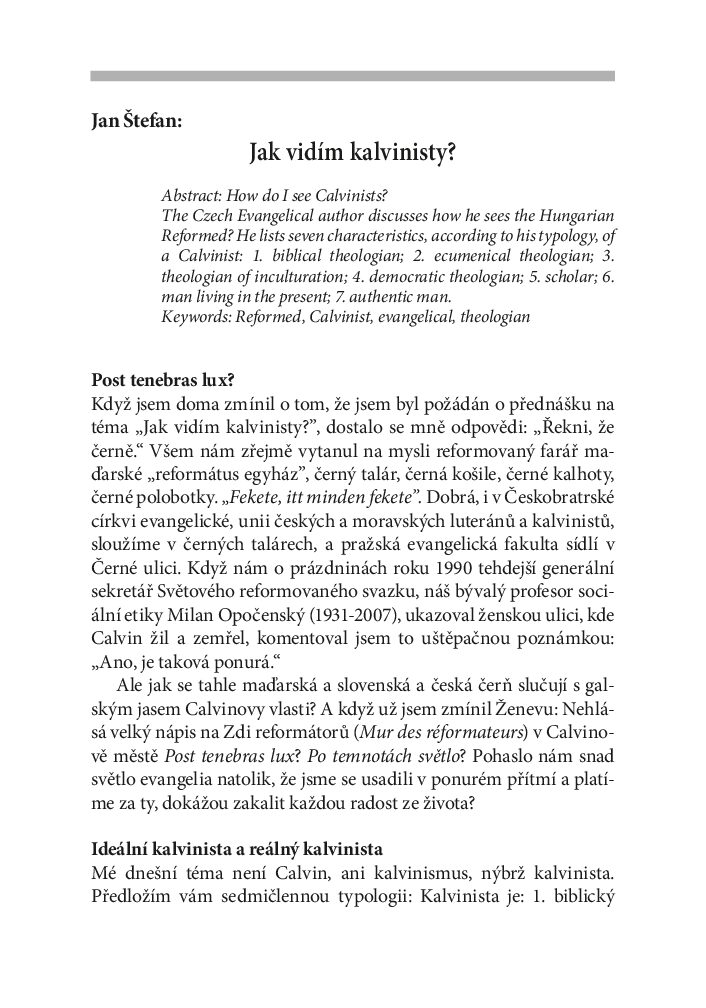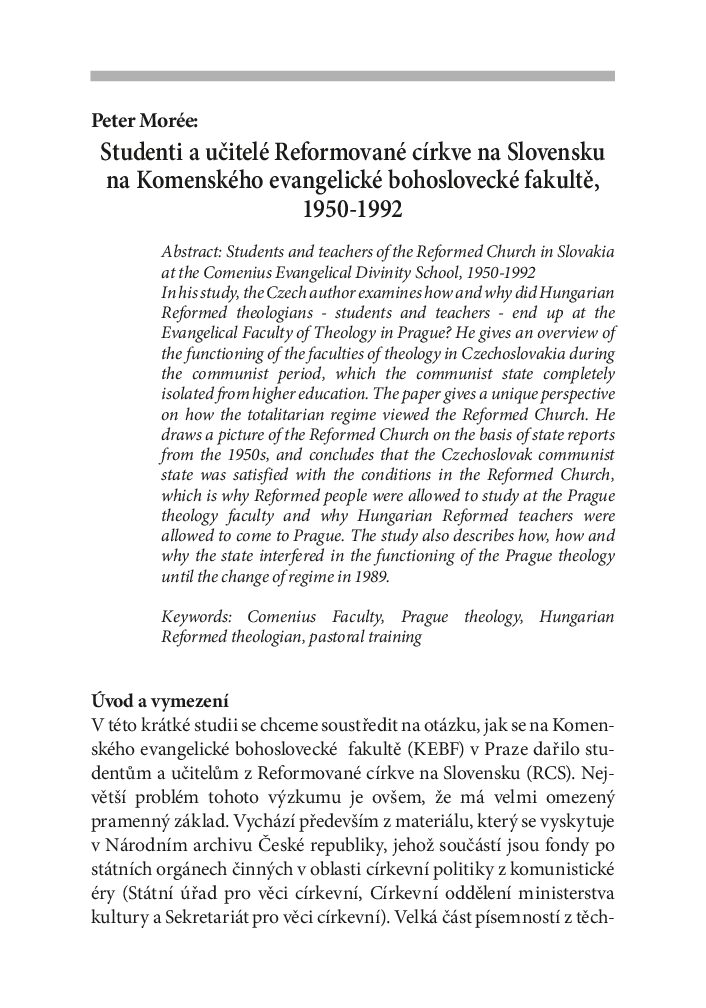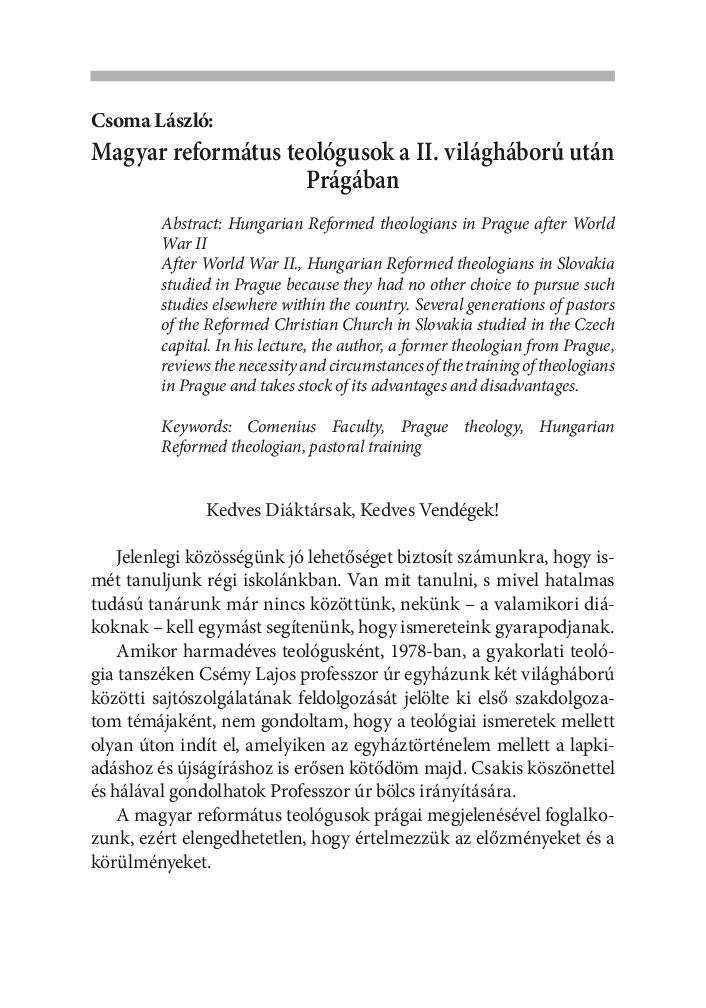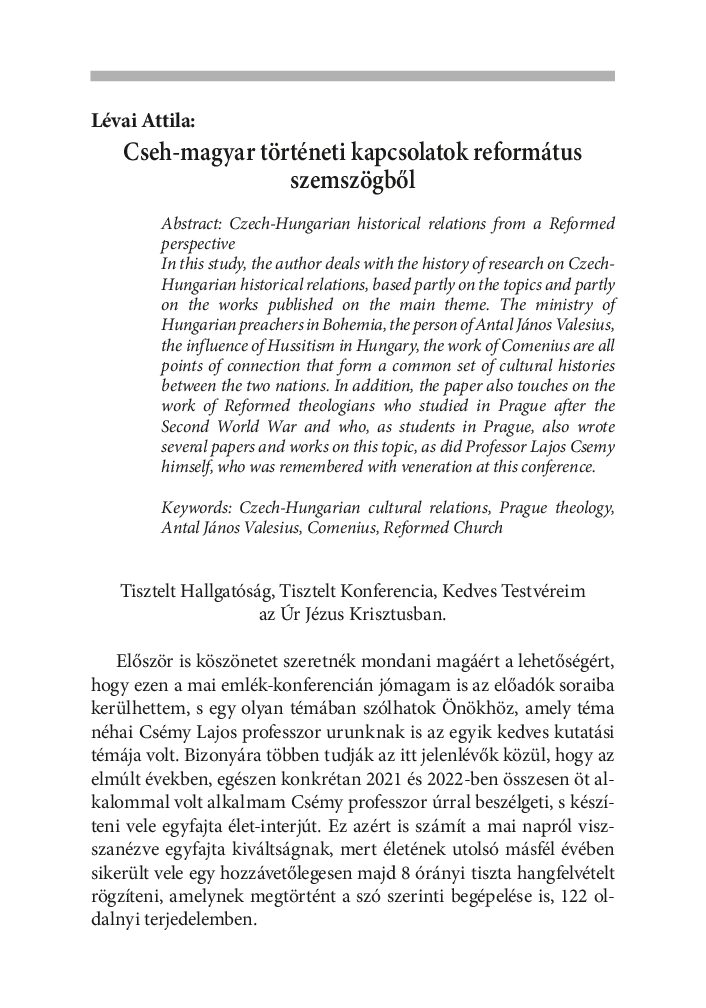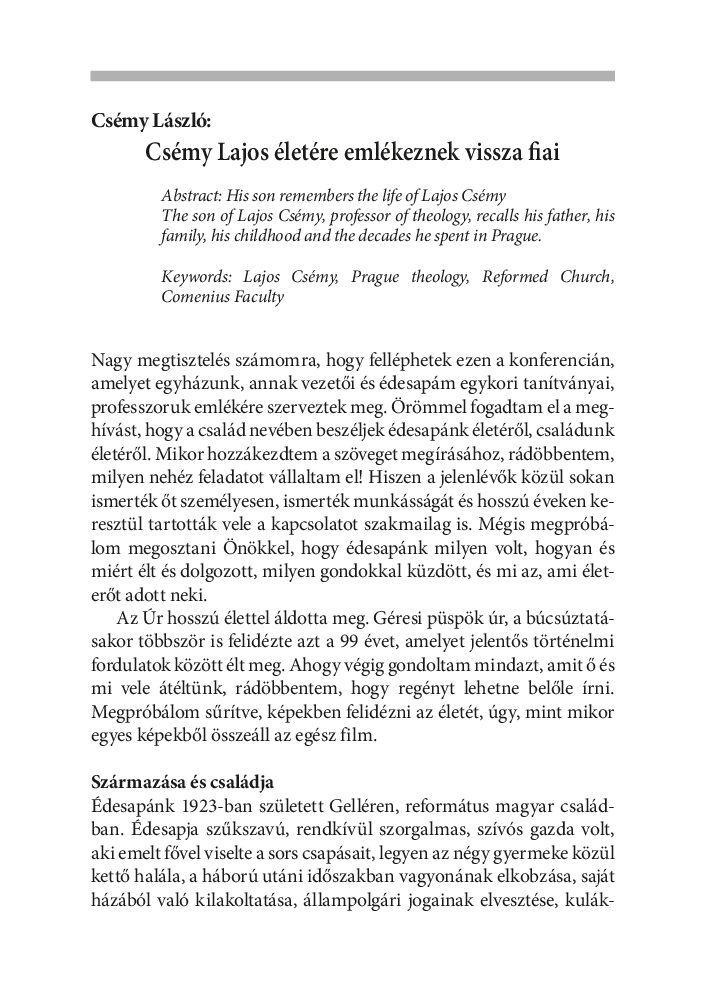Somogyi Alfréd: A magyar-szlovák lakosságcsere hatása a felvidéki református egyházra
After World War II, in Czechoslovakia, the Hungarian minority in the new Slavic state was deprived of all its legal rights. The Beneš decrees branded the Hungarians as war criminals and the political leadership of the newly formed Czechoslovakia tried to get rid of the Hungarian minority by a forced deportation of its own citizens. In the first wave, Hungarians were deported to the Czech Republic. In the second wave, they were simply forced to re-settle across the border
to Hungary which neighboured the newly formed northern Slavic state. This forced the Hungarian government in Budapest to negotiate a population exchange with the extremely pan-slavic nationalistic state. This meant that as many Hungarians from Czechoslovakia would have been ‘re-settled’ in Hungary as many
Slovaks residing in Hungary were to apply to change country and move to Czechoslovakia. This study describes the impact of the forced exchange of citizens on the Reformed Church.
Keywords: population exchange of citizens, Reformed church, Beneš decrees, collective guilt, Czechoslovakia, Hungarian minority, Czechslovakian nationalism

